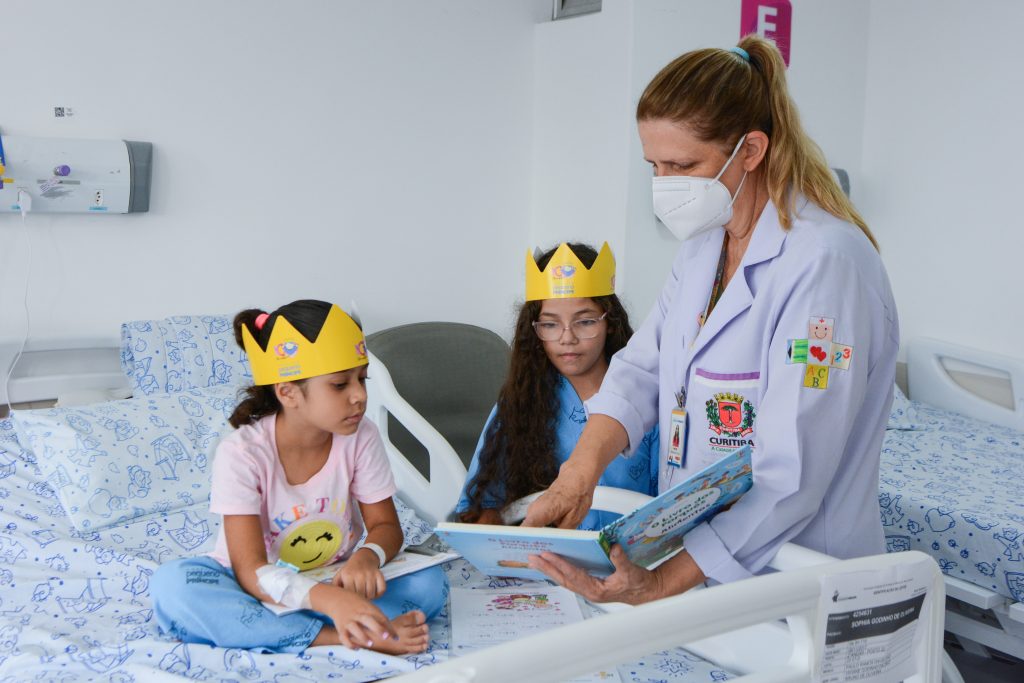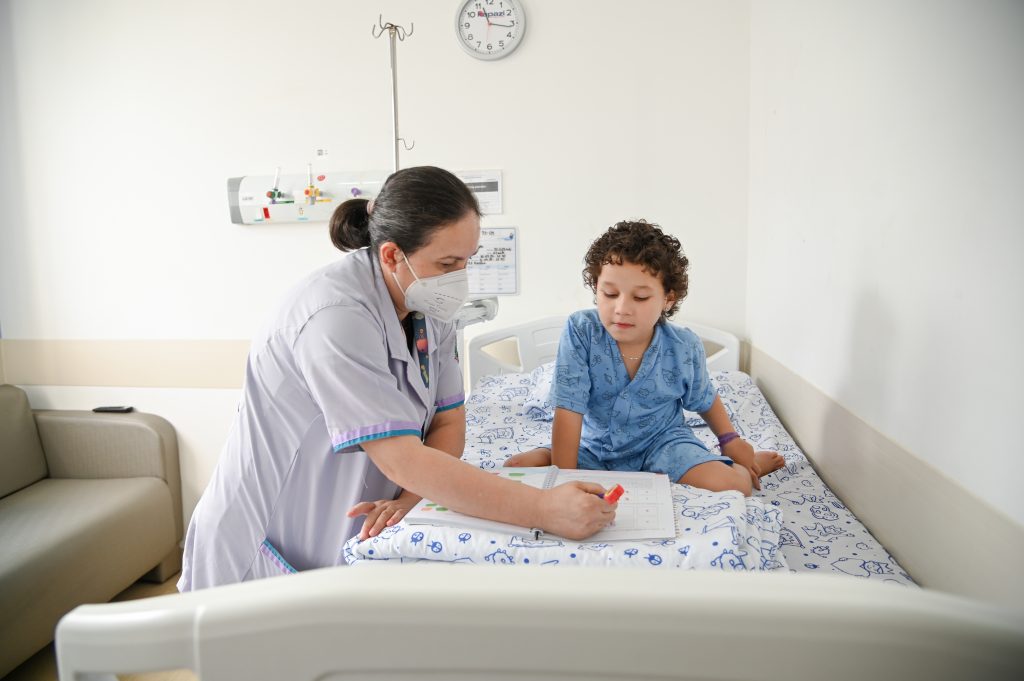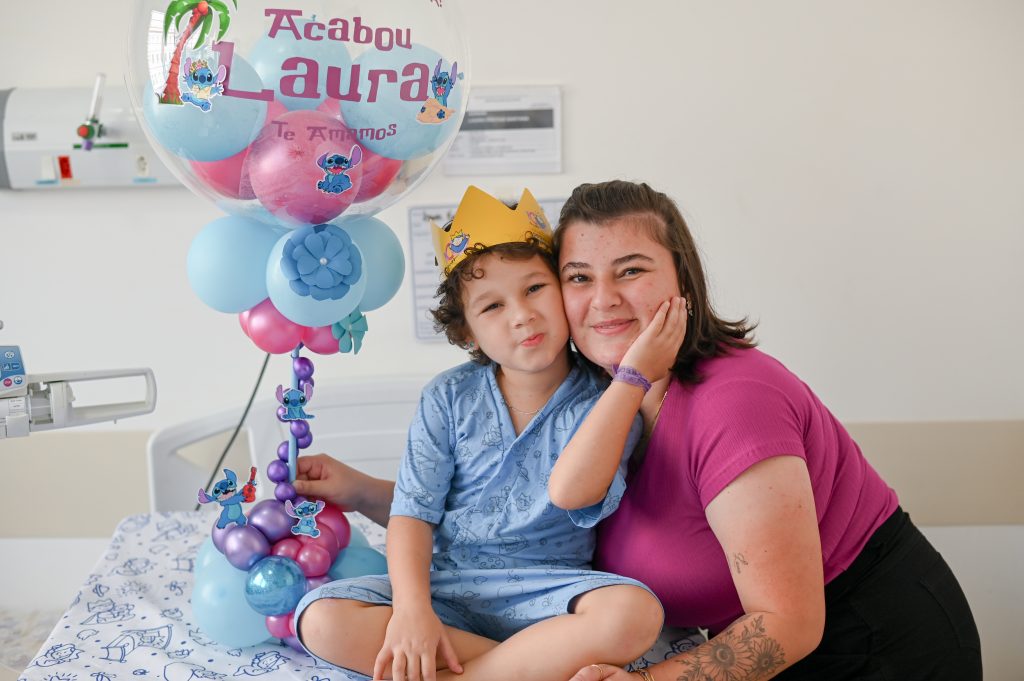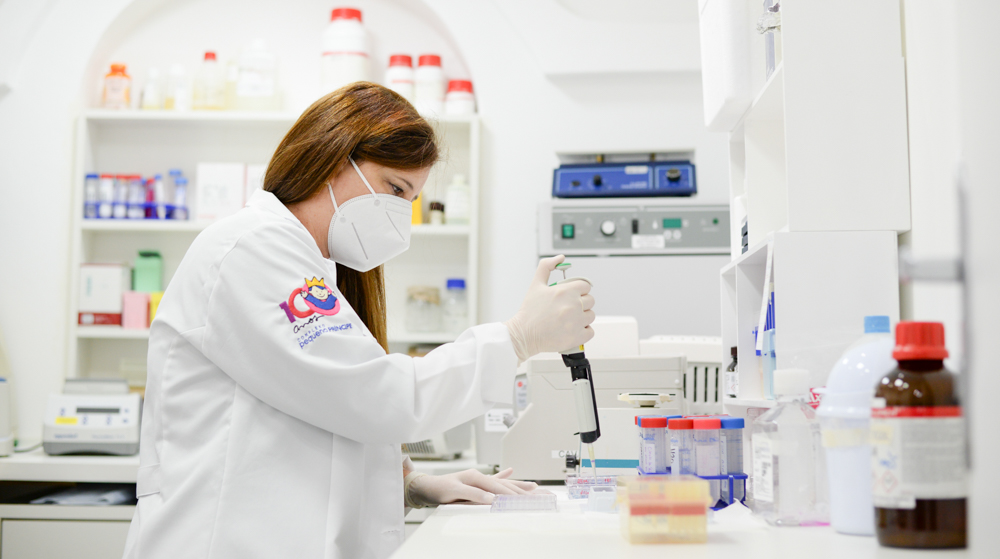More than 70% of children and adolescents who receive school support at the Pequeno Príncipe attend public schools
In 2023, around 1,800 patients aged 3 to 19 years old benefited from educational initiatives carried out at the Hospital

An unprecedented survey carried out by the Education and Culture Sector team at Pequeno Príncipe Hospital revealed that 72% of children and adolescents who received school support in 2023 are enrolled in public schools. This data reinforces the importance of offering this type of care during hospitalization, as, in addition to being a right established by the Brazilian Child and Adolescent Statute (ECA, abbreviation in Portuguese), it is a fundamental practice to maintain the bond with school, avoiding dropout or difficulty resuming routine after discharge.
During the year, 1,809 children and adolescents aged 3 to 19 were assisted. Of these, 56%, that is, 1,008 children, were enrolled in early childhood education and elementary school I, a period that covers the initial grades up to the 5th year. The other 44% – 801 patients – were enrolled in elementary school II, high school or youth and adult education, stages of education that include students from the 6th year onwards.
Another relevant fact: 52 children and adolescents were out of school. According to the sector coordinator, Claudio Teixeira, there are basically three reasons that explain this situation. The first is related to the child’s health condition, which often does not allow her to continue studying. The second reason is that sometimes the child could attend, but the family feels safer leaving her at home. And the third is that many schools do not have the support to receive children with certain health conditions.
“Law 13,716, of 2018, ensures educational assistance to all basic education students hospitalized for health treatment in a hospital or at home for an extended period of time. Many families and even schools are unaware of this law and the State’s obligation to provide home pedagogical care. In other words, even if the child is unable to go to school, they have the right to receive educational assistance at home. Most of the time, however, it is our team that warns the family member and even the school about this right,” he reveals.
The study also showed the scope of care provided by the Hospital itself: the patients treated by the professors came from 19 states in Brazil. Two children were from Paraguay; and one, from British Guiana.

Early Childhood
Another important fact revealed by the survey is that 25% of the children assisted are up to 6 years old and, therefore, are in Early Childhood. Neuroscience studies have already demonstrated that it is in this magical phase of life that brain development occurs more quickly, shaping the brain based on the interactions that the child experiences. This does not mean that a child at this age needs to be literate or that they should learn to do math, for example. But the stimulation that teachers provide through games, storytelling, among other activities, is key on supporting development at such a challenging time as the period of hospitalization. “We need to preserve the essence of the child, which is curiosity, and their desire to learn. And we can do this in many ways, even during a hospital stay. Education in the hospital environment also has the dimension of preserving children’s mental health,” explains Teixeira.
According to economist James Heckman, winner of the Nobel Prize in Economics in 2000, supporting vulnerable children in Early Childhood provides, in the long term, an economic return for society, as this child will become a more productive and physically and mentally healthy adult. According to Heckman, for every dollar invested in Early Childhood, the gain can be as much as US$7.
Classes at the Hospital
Pequeno Príncipe Hospital was one of the pioneers in offering school support for hospitalized children, starting this practice in the 1980s, following the mobilization of Social Service teams. In 2002, the Education and Culture Sector was formally created and today has seven teachers from the municipal education network, six teachers and one educationalist from the state education network and five educators hired by the Hospital itself.
Every day, the teams visit the hospitalization stations checking which children and adolescents were admitted. The first contact aims to gain the trust of the family and the patient, get to know the main interests and present a very different hospital, where there is space to learn, play and have fun.
Secondly, teachers contact the child’s home school to understand what content is being worked on in the classroom. This information, combined with loving listening to children and adolescents, is one of the inputs for teachers to organize the activities that will be proposed. “The child will not always be physically willing to receive our intervention, and we respect that. But when she feels good, she can count on us to learn and make this stage of her life smoother,” emphasizes the coordinator.

The magic of learning
Laura Freitas Santana was admitted to Pequeno Príncipe Hospital when she was about to turn 5 years old. She was diagnosed with neuroblastoma, a very aggressive type of cancer. The condition was serious, as the disease was already at an advanced stage.
Because of the treatment, the girl was away from school for more than a year. “But she never fell behind. With the help of teacher Ana, she learned to read at the Hospital. And she also clarified doubts in math calculations. Laura loves studying,” highlights her mother, Ariane Freitas.
After almost two years of treatment, today Laura is in remission from cancer and attends school regularly in her city, in Paraná state inland. “The chances of a cure were minimal, but we won. Thanks to all the support, the competence of all the doctors, nurses, the teacher, the psychologists – everyone forms a very large support network. We won not just because of one employee, but because of several, as everyone here is very competent. Laura is our miracle.”
More
Research seeks to develop a more accurate method for diagnosis, prognosis and monitoring of tumors of the central nervous system
CNS tumors have a higher incidence in children up to 10 years of age and represent 30% of deaths from childhood cancer in Brazil
Molecular tests change the trajectory of treatments and increase the chances of cure
With the support of society, Pequeno Príncipe offers these exams to patients treated by the Brazilian Public Health System








